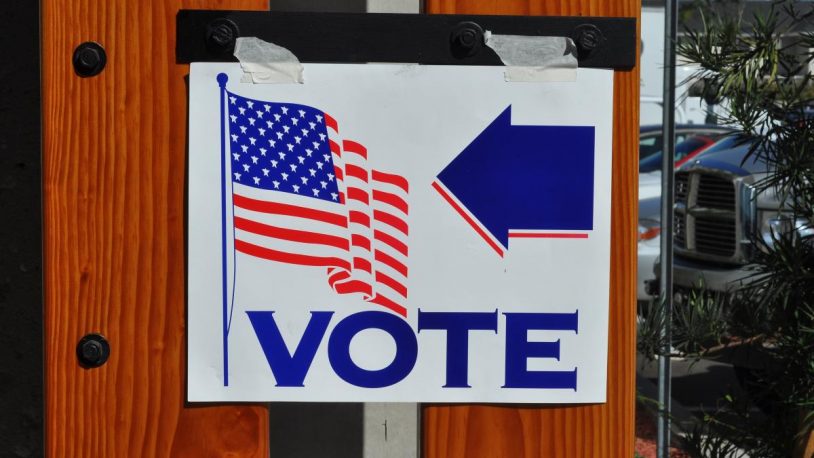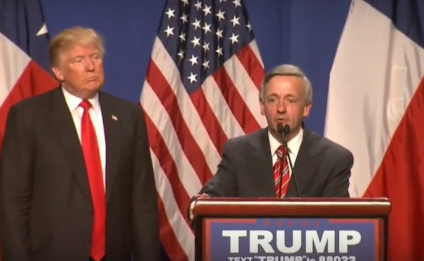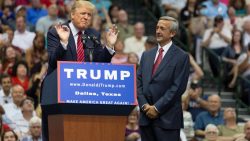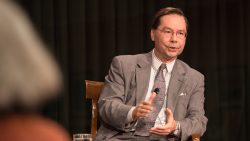President Trump’s “commission on election integrity,” created in an apparent attempt to justify the president’s wild claims about millions of unauthorized votes in the 2016 election, is holding its second public meeting today, in New Hampshire.
Kris Kobach, the Kansas secretary of state and vice chairman of the commission, set the tone for the meeting by publishing a stunningly dishonest column in Breitbart claiming that New Hampshire’s tight 2016 Senate race could have been swung by voter fraud (and, of interest to Trump, that Hillary Clinton’s victory in that state might have been the result of fraud as well).
Here are a few things to look out for at today’s meeting:
- The New Hampshire Lie
Kobach’s claim that fraudulent voting changed the outcome of 2016’s election in New Hampshire has been widely debunked: Most glaringly, he seems to have counted many legally voting college students in his tally of supposedly fraudulent votes. But Kobach’s bogus claim is sure to come up at the meeting in New Hampshire, and it looks like he’ll have at least a somewhat receptive audience. Commissioner J. Christian Adams has promoted the New Hampshire claim, and it was reiterated by the press secretary for Vice President Mike Pence, the commission’s co-chair. John R. Lott, one of the witnesses at tomorrow’s hearing, retweeted a Fox News story about the claim.
- Fuzzy Math
Commission member Hans von Spakovsky is also scheduled to testify before the panel tomorrow. His prepared materials show that he’ll be talking yet again about a report released by his group, the Heritage Foundation, purporting to show more than 1,000 cases of voter fraud throughout America. As we wrote yesterday, a new Brennan Center for Justice analysis shows that these cases are spread out over a period of decades and include only a handful of the kind of cases that commission members claim are swaying elections nationwide. The Brennan Center notes that Heritage’s report in fact “confirms what numerous studies have consistently shown: Voter fraud is vanishingly rare, and impersonating a voter at the polls is less common a phenomenon than being struck by lightning.”
The presentation that von Spakovsky released in advance of his testimony also shows that he’ll be speaking about a Pew study of out-of-date voter rolls. Trump has used the 2012 study to claim that millions of people casted unauthorized votes in 2016, even though the author of the study has said that it shows no such thing.
- The Bannon/Mercer Influence
Another study purporting to show widespread fraudulent voting that has made the rounds in right-wing media will also take center stage at Tuesday’s meeting. In July, the Government Accountability Institute released a study purporting to have found “7,271 highly likely cases of inter-state duplicate voting” based on cross-checking states’ voter rolls with a commercial database of things like magazine subscription data. Not only does the GAI study come up in von Spakovsky’s presentation, it appears that data from the study will be the centerpiece of the presentation by Ken Block, whose Simpatico Software Systems partnered with GAI on the report.
The Government Accountability Institute, the group behind the report, was run by Steve Bannon until Bannon joined the Trump campaign in August 2016. During that time, GAI paid Bannon a substantial salary while he was also running Breitbart News. GAI has been funded substantially by the Mercer family, major backers of Trump’s presidency, and Rebekah Mercer currently chairs the organization’s board. GAI’s most notable campaign-season project was funding Peter Schweizer’s book “Clinton Cash.”
A University of Florida professor who is “leading an effort to replicate and verify” the GAI study told the Huffington Post that some of the matches that the study found could be administrative errors, so “these are all allegations at this point.”
- Voter Roll Purges
One member of Trump’s commission is J. Christian Adams, a former Justice Department lawyer who has worked with a series of conservative legal groups on voting issues since leaving the government, in particular working to force states and counties to purge their voter rolls. In a previous job at Judicial Watch, Adams worked with Robert Popper, who is scheduled to speak at today’s meeting.
The ACLU’s Brian Tashman (a former colleague of ours at RWW) wrote of Popper:
Popper, the director of Judicial Watch’s Election Integrity Project, has threatened to sue states and counties unless they purged their voter rolls of supposedly ineligible voters. Advocates feared that the move targeted communities of color. Lott has a record of pushing discredited “analyses” about the 2008 Minnesota Senate race, erroneously blaming voter fraud for the Republican incumbent’s defeat.
Popper’s prepared testimony centers on federal enforcement of voter roll purges.
- Maybe It’s All About Guns
One of the stranger additions to tomorrow’s lineup is John Lott, a questionable gun-rights researcher and the author of “More Guns, Less Crime” and “The War on Guns,” whose Crime Prevention Research Center produces such Fox-News-ready content as “Do White Police Officers Unfairly Target Black Suspects?” and “Muslims responsible for at least 80% of the worldwide bombings killing at least 4 people during 2014-15.”
Lott is set to present a paper he wrote in 2006 claiming that it is “hard to see any evidence that voting regulations differentially harm either minorities, the elderly, or the poor.” A PowerPoint presentation he submitted in advance makes the apparently tongue-in-cheek suggestion of applying “the background check system for gun purchases to voting” because “Democrats have long lauded background checks on gun purchases as simple, accurate, and in complete harmony with the second amendment right to own guns.” [Update: Lott tells the Washington Post that his proposal isn’t just meant to make a point about background checks for gun owners and is entirely “serious.”]







